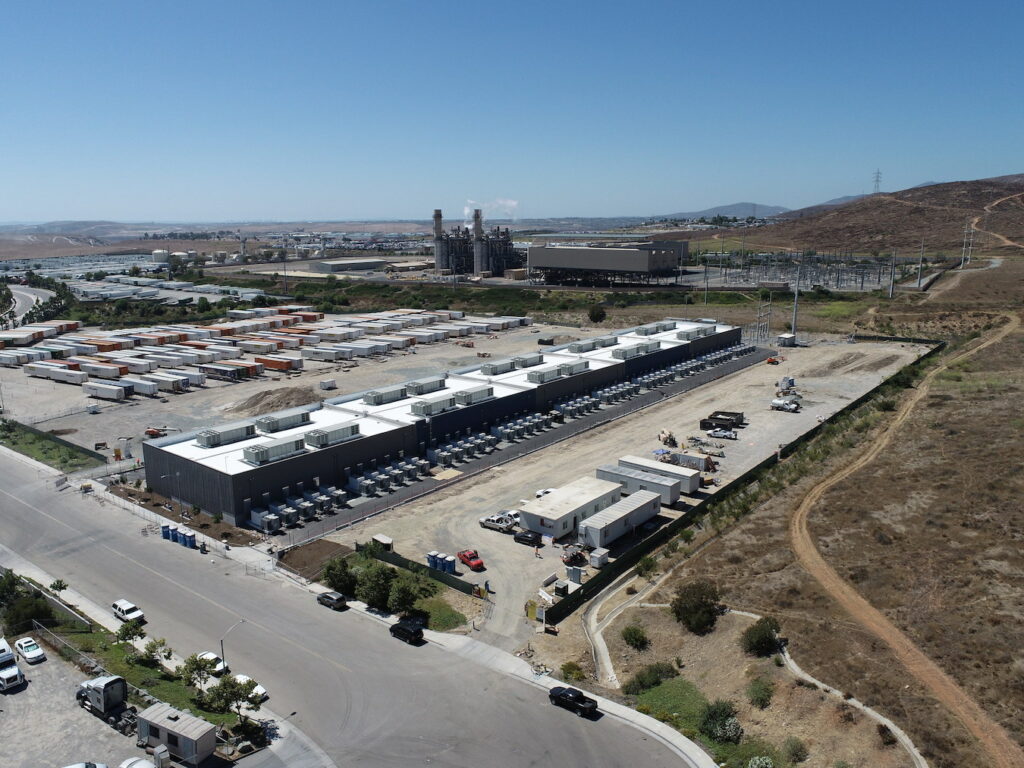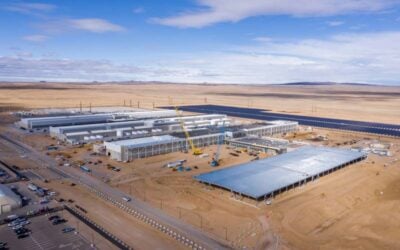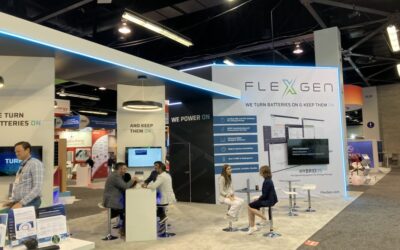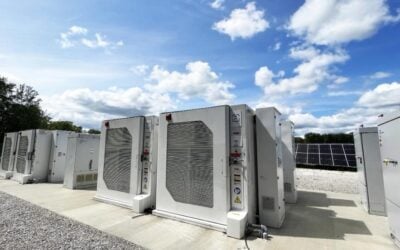
Update 28 August 2024: Redwood Coast Energy Authority (RCEA) voted to continue being part of the ESSA, RCEA board clerk and executive support specialist Lori Taketa confirmed to Energy-Storage.news. Taketa said that CC Power also voted to approve the amendments.
LS Power-owned REV Renewables is renegotiating the terms of an energy storage services agreement (ESSA) for a long-duration energy storage (LDES) project for a second time.
Enjoy 12 months of exclusive analysis
- Regular insight and analysis of the industry’s biggest developments
- In-depth interviews with the industry’s leading figures
- Annual digital subscription to the PV Tech Power journal
- Discounts on Solar Media’s portfolio of events, in-person and virtual
The company is seeking to amend the terms of its ESSA with California Community Power (CC Power), relating to power offtake from the developer’s Tumbleweed lithium-ion (Li-ion) battery storage project located in Kern County, California.
Formed in 2021, CC Power is a joint powers agency representing the interests of nine California community choice aggregators (CCAs) established to take advantage of economies of scale when it comes to power procurement.
Fixed US$/kW/month price for 15-year term
The Tumbleweed LDES project was selected as part of an RFO issued in October 2020 by a group of CCAs seeking to procure up to 500MW worth of long-duration energy storage (LDES) resources.
Following the formation of CC Power early in 2021, the joint powers agency continued the work on the RFO that was already underway, negotiating and securing an ESSA with REV for its Tumbleweed project in January 2022, as reported by Energy-Storage.news.
Over the following three months, the agreement was approved by the eight CCAs participating in this particular ESSA: CleanPowerSF, Peninsula Clean Energy, San Jose Clean Energy, Silicon Valley Clean Energy, RCEA, Sonoma Clean Power and Valley Clean Energy.
Under the terms of the initial agreement, each CCA was set to receive a portion of capacity from the 69MW/552MWh agreement for a fixed US$/kW-month price for a period of 15 years under a tolling agreement with full capacity rights.
The agreement between CC Power and REV Renewables was first amended towards the end of 2021, increasing the contracted capacity from 69MW/552MWh to 75MW/600MWh.
‘Uncertainty related to tariffs on Chinese imports’
According to an agenda packet for the upcoming RCEA meeting, REV informed CC Power early this year that the Tumbleweed project was no longer economically viable at the original contract price, citing an increase in equipment costs and “uncertainty related to tariffs on Chinese imports depending on the 2024 presidential election outcome”.
As reported by Energy-Storage.News and detailed in a Fact Sheet issued by the White House on May 14 2024, the Biden Administration plans in 2026 to increase the tariffs paid on non-EV batteries imported into the US from China by 17.5%.
The administration plans to also increase the tariff on certain battery components and minerals imported from China used to make batteries, including natural graphite that makes up the anode in the majority of modern-day lithium-ion batteries.
The news has been met with a mixed reaction from the industry, with market intelligence firm Clean Energy Associates (CEA) predicting the potential tariff increases could increase costs for US BESS integrators by 11-16%.
15-21% price increase indexed to import tariff rate
In order for the project to remain viable, REV and CC Power have renegotiated the terms of the Tumbleweed ESSA. These amendments include a 15-21% contract price increase indexed to the import tariff rate on Chinese goods up to a cap, along with increased penalties for REV Renewables if it’s unable to deliver the contracted resource adequacy (RA).
REV will also allow CC Power to purchase RA from the partially built project for around 1.5 years before the contracted commercial operation date (COD) at below-market rates.
Sharing of IRA benefits would make Tumbleweed feasible
Under the terms of the amended agreement, CC Power will no longer receive a share of the tax benefits expected to be handed to REV as part of the Inflation Reduction Act (IRA).
According to the meeting packet, REV Renewables determined that due to unexpected project cost increases, coupled with the new tariff uncertainties, sharing of tax benefits with CC Power would make the project “financially infeasible”, even with the renegotiated contract price increase.
RCEA noted that the conceding of tax benefits would be minimally offset by the expected savings from procurement of RA in advance of the contracted COD, as described above.
Amendments in RCEA’s best interests despite additional cost
RCEA noted that, despite the additional costs associated with the amended ESSA, moving forward with the renegotiated contract was still the best option for addressing compliance needs in a timely manner.
Although RCEA expects the amended contract to cost an additional US$1.5 million, it noted that this figure could be closer to US$2.5 million in a worst-case scenario where batteries weren’t imported in time, a maximum tariff on Chinese imports is brought into effect, and other CCAs default on the deal.
The Board of Directors at CC Power was expected to vote on the amended contract at a meeting yesterday, which will then be followed by votes from participating CCAs to decide whether they want to continue to be a part of the ESSA.
One of the CCAs represented by CC Power, Redwood Coast Energy Authority (RCEA), is then set to discuss the ESSA amendments today, at a regular Board of Directors (BOD) meeting. Energy-Storage.news will follow up to report the outcome of those meetings in due course.
CC Power selected a second 8-hour duration lithium-ion BESS project for a contract in March 2022, a 50MW/400MWh asset in development by Onward Energy with an expected commissioning date in 2025, ahead of the Tumbleweed project.
600MWh California BESS goes into delayed commercial operation
In other California BESS news, the battery storage portion of Arevon Energy’s Vikings Energy Farm was brought online this month, according to upcoming BOD meeting materials from the project’s power offtaker San Diego Community Power (SDCP).
Under the terms of the original PPA between SDCP and Arevon, the Vikings project was expected to come online in June 2023. However, after widespread Covid-19 and supply-chain procurement issues, the two parties made several amendments to the project’s offtake agreement.
These changes included reducing the BESS size from 150MW/600MWh to 145.5MW/582MWh and pushing the contracted online date by 10 months to April 2024. Despite these changes, the BESS still missed its amended contracted online date by four months.
As reported in Energy-Storage.News in November 2023, Arevon financed the Vikings project using a combination of debt financing alongside a tax credit transfer under the IRA, thought to be among the first times a developer in the US has utilised credit transferability.






